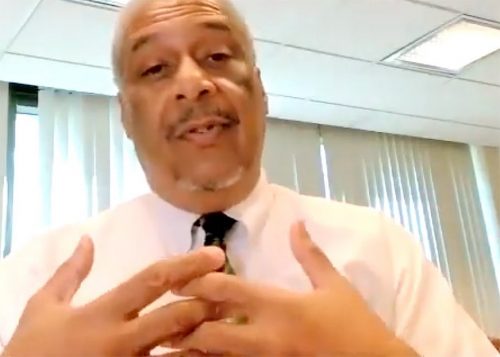By Mark Pattison | Catholic News Service
WASHINGTON (CNS) — Helping workers win their rights and achieve dignity in the workplace is just one of the many activities funded by national grants from the Catholic Campaign for Human Development, the U.S. bishops’ domestic anti-poverty program.
Workers’ rights were front and center during a Sept. 15 webinar, “CCHD and Worker Justice,” sponsored by the Catholic Labor Network.
The focus was on the Chicago Workers’ Collaborative, which has been the recipient of national CCHD grants since the 2000s.
“The Catholic Church was the first grant, and has supported us throughout our journey,” said Tim Bell, executive director of the collaborative.
The collaborative helped Barry Rose, who took part with Bell in the webinar. Rose called himself “a temp worker and returning citizen.”
After his release from prison, Rose said, he heard the familiar taunts that he would soon be returning to jail. “The first thing I wanted to do was find a job,” but he had little experience in seeking one, he said.

Rose signed up with a temp agency in Chicago called Elite Staffing, which sent him to a factory. “It was OK, but the conditions I saw were really, really too hot,” he recalled. “We was sweating up a storm.” Rose lasted eight months until he complained. “The liaison at the factory, she was like, ‘I’ll make sure you’re not hired'” again, Rose said.
“She made my job a living hell,” he continued. “Once she DNR’d me” — an acronym for Do Not Return; many firms contracting with temp agencies will dismiss temps one day before they can become permanent employees — “we had a meeting with the company, with Elite,” he explained. “I went for my unemployment, she says that people like me, incarcerated, all they want is a job for a day.”
“They was wrong. I want to take care of my family. I got two little girls and I want to put a roof over their head,” Rose said.
Rose wasn’t the only one jettisoned. “They got rid of all of the temps,” he said. “All the machines” on the job site, he added “was dangerous,” and inspectors paid a surprise visit to the factory. “They figured one of them had ratted them out,” according to Rose.
He next got a temp job at Gold Standard Bakery, which supplies bread products to Burger King and Starbucks locations in the Chicago area.
“They had us working in the ovens. The heat was unpredictable. People was passing out. So we did an action” on the job, Rose said. “Once they saw the action, they took me up in a little room and said, ‘How do we make this go away?’ I said, ‘Give me a job.'”
Once he was hired as a permanent worker — no longer a temp — “the people elected me to be on the (union) bargaining committee. So when I was fighting for their raises … they elected me to be the union steward,” Rose said. “We was fighting instead for workers.”
At Gold Standard, temps were on 90-day contracts, but worked 89 days and were then let go for a month before being brought back on another 90-day deal, a process known as “turnaround.”
“I had met people who had been turned around three times,” Rose said. Under the new contract, “we made sure (it was) 30 days” tops before coming on as a full-time employee, “but if they turn you around, they got to have a good reason,” he added.
“We fought, we fought, we fought, and now people are getting into the factory faster. Now they don’t wait 90 days to turn you around,” he said, adding that when he started, 60% of the workforce were temps; now it’s 20%.
Bell said there are an estimated 800,000 temp workers in Illinois. “Barry helped get the Responsible Jobs Creation Act passed, the strongest temp workers jobs law in the country.”
Now, “my two girls think I’m a role model,” Rose said. “I went to Springfield (the Illinois state capital) to fight for my rights.”
When they established CCHD, their domestic anti-poverty program, “the bishops in their wisdom 50 years ago said that persons who find themselves in poverty, they need to be the ones telling us what they need,” said Ralph McCloud, CCHD executive director, during the webinar.
“What we insist on to this day is that the boards of directors of these organizations” have these folks on the board, he said, adding that “over 50% of those persons” have to be on the board.
“The voice must be that of the people themselves,” McCloud said.
“Depending on who you listen to, it’s a way of people and groups coming together to influence the policies and the cultures of the people surrounding them.”






















